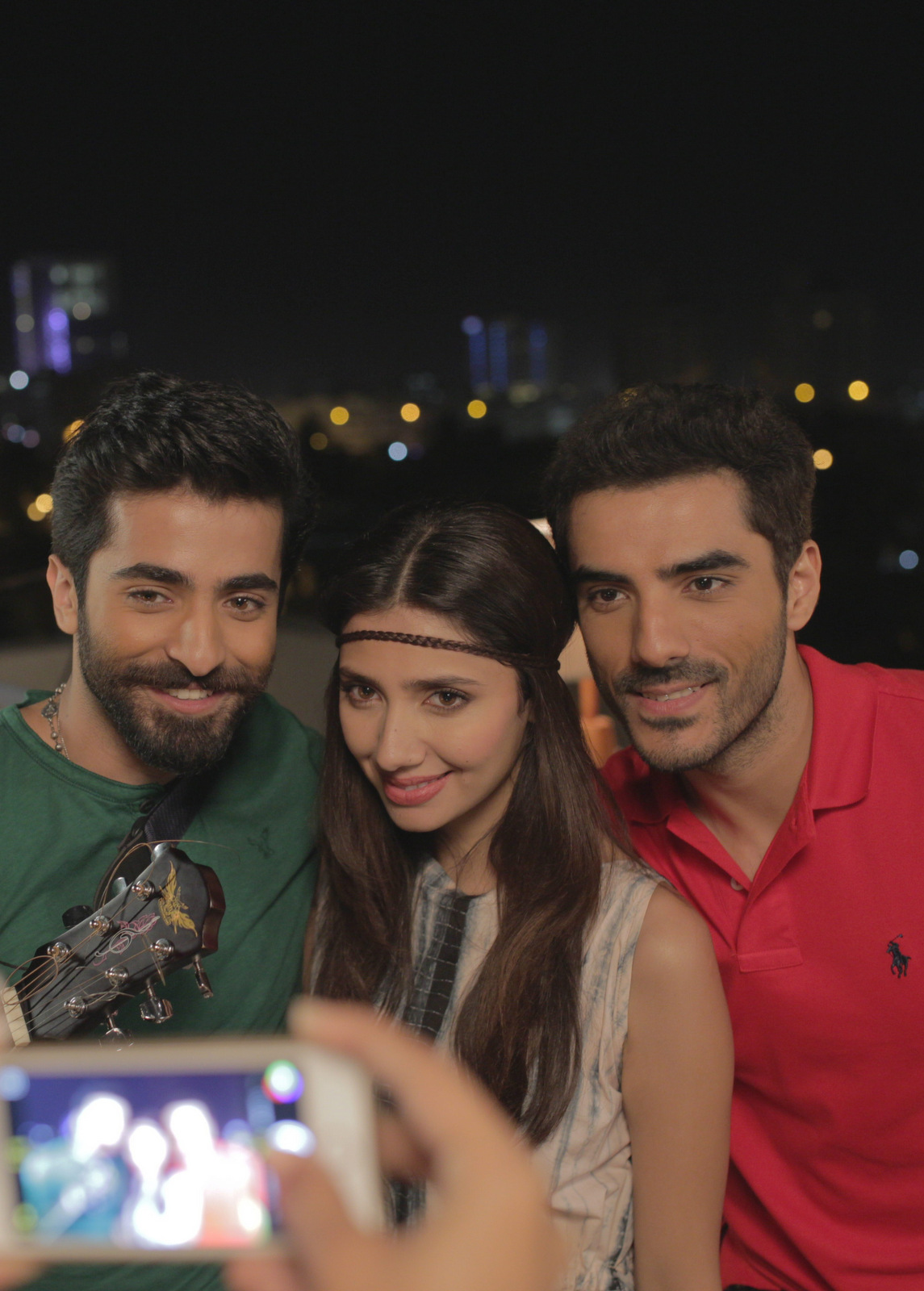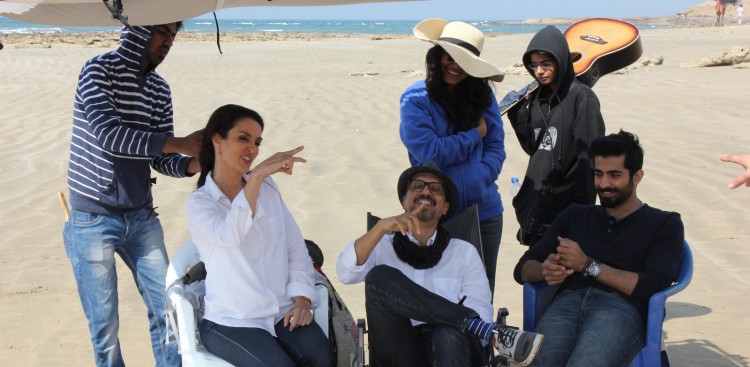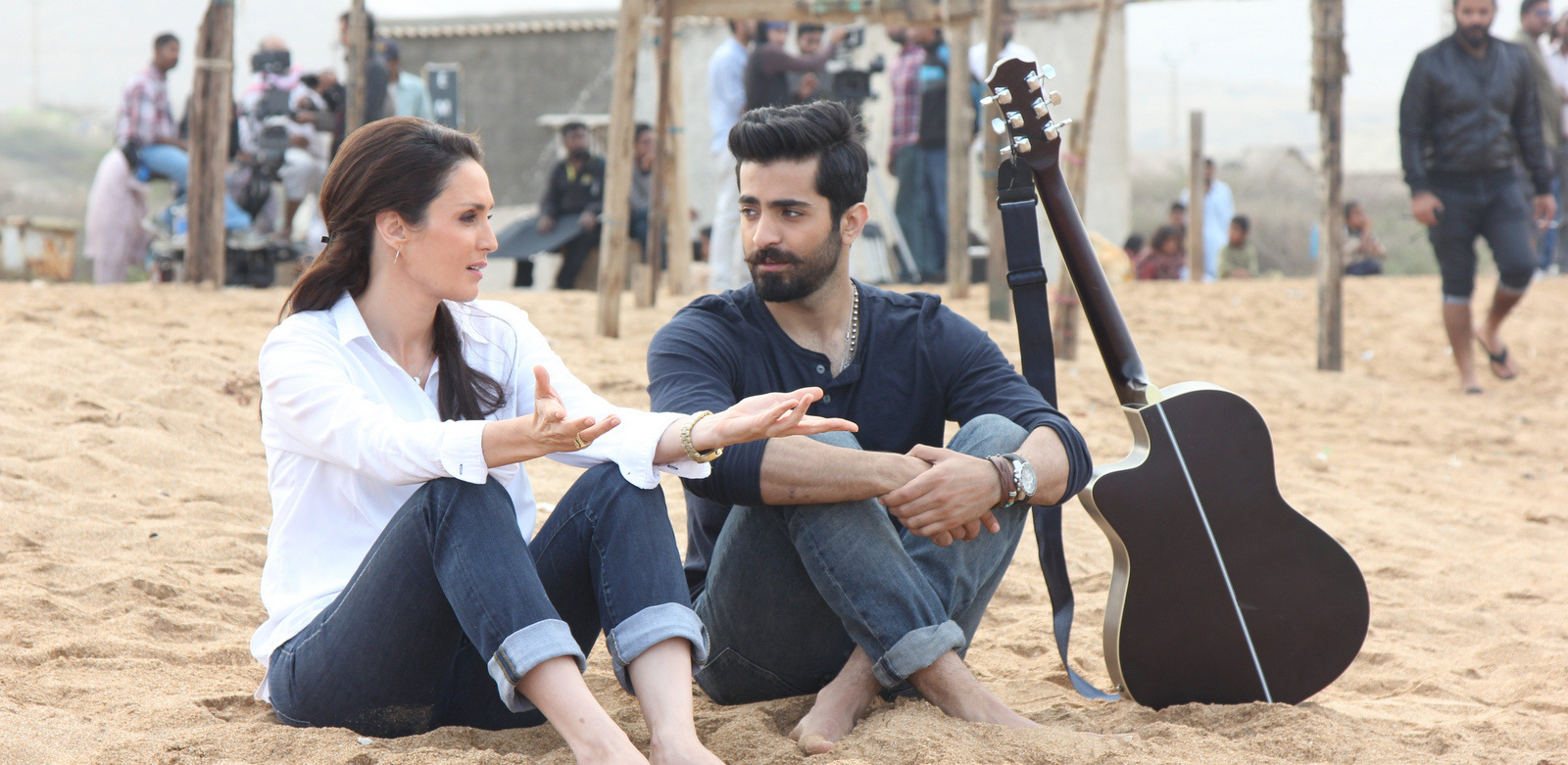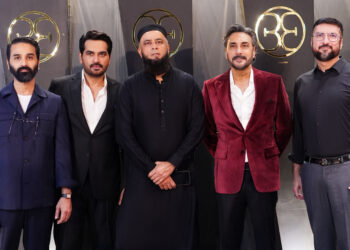Blessed with good-looks and a promising acting-career, Sheheryar Munawar sits down with Team SiddySays for an exclusive interview about his upcoming movie Ho Man Jahaan, excessive female attention and how a business-school and a career-focused family shaped his creativity from a very young age!
First movie as an actor, and a producer – which one are you most nervous about?
Producer for sure! As an actor I’m not nervous at all because I was in capable hands of Asim Raza, and he’s an amazing director whom I had great chemistry with. I have been working with him since 3 years now, MashaAllah so we have a great understanding. I have worked it him as an Assistant Director on a couple of ads, and as a producer for commercials as well.
Being an actor was less stressful for this film because we had training sessions months before. It included 3 months of guitar lessons, learning how to ride a bike and voice training etc. So by the time we got to sets, everyone was already in character.
As a producer it was stressful because even though I have 2.5 years of experience in terms of producing for commercials, that’s completely different from producing a film. A producer has to be involved with everything, from the scripting stage to art direction. There were a lot of sleepless nights and there still are a lot of sleepless nights.
In between takes, the rest of the cast used to take time off and relax, but that was the most stressful part for me because even between takes I had to then prepare for the next spell. But what really helped was that, as an actor, I was already in character, I didn’t have to worry much about that part and could focus on production bits.
You were pursuing a degree in business from IBA, what happened then? How did this creative shift come about?
Well I feel that creativity has nothing to do with what you study and stuff. It’s something that has been inculcated in you as a child. My family, MashaAllah has been very supportive of me since childhood. As a kid, I was into debates and was very good with my hands. What that means is that I used to make remote control planes, and ship models. I had a little workshop for myself, which my father set up. After work he and I used to work with tools and make little car models, and ships and planes etc. So in terms of that, creativity was always encouraged in my family.
I was also encouraged to write after my sister, who published her poetry book when she was 23 called ‘Shades of Melancholy.’ She was 15 when she started working as a copyrighter for AdCom in Lahore, and she encouraged me to write a lot.
In terms of business degree, I believe education is very important because it becomes a backbone later when you opt for a career. No matter what you study, it never really goes to waste. So the business part I always wanted to study from finance to accounting to hardcore math that I think is really important even to this day, because I keep using all of what I’ve studied production.
Were you a great student?
Oh, I was a decent student. I was an all rounder really, because I was the debate team captain, was in the cricket team and was a part of school-body elections and all. What IBA helped me with was my PR-skills, I think it was very well gelled in with my degree because right after graduation, I started working in advertisement with Asim. I also started acting simultaneously, but then I took a step back and wanted to learn the craft first instead of doing drama after drama. My actual interest was to work behind the camera, but acting was also my passion, so for the moment I got the best of both worlds. 
What was it like, going back to the same school you graduated from?
We shot a good chunk of the film at IBA and it was an amazing experience, because I got to meet a lot of my juniors who were in their first and second year at the time I was graduating. It was a very warm welcome for me, IBA has always been very kind to me. They call me on sessions once in awhile on leadership or something. As the alumnus, I really respect that institute and I respect Ishrat (Hussain) Sahab a lot.
So going back to the place that had a great impact on me was amazing. And going back there, not only as the representative of that school but doing something for that institute that would bring it to limelight in front of the entire world was an honor. We’re projecting IBA as one of the leading Business School in Pakistan and we’ve done it really respectfully.
So was it easy for you to get into the college-day Arham, given that you’ve been in the same corridors and sat in the same classes?
Oh definitely! The overall feel is still the same even though the campus has developed beautifully over time. It brought back a lot of memories and nostalgia. I remember I used to secure decent grades but I was a bit of a mischievous student so my character was a lot like that too in the film. So the overall feel was like a great blast from the past, a lot of fun and felt like I was shooting at home.
Were you always drawn towards arts and theatre back in school days?
I did a bit of theatre and drama back in O’levels and A’levels and in IBA as well. But my main interest was always to get behind the camera because I had someone in my family who was also into this. At very young age I used to go to sets, and behind the scenes. There’s actually a really interesting story from when I was young and I visited a drama set where Humayun Saeed was acting and I got his autograph on this little piece of paper! He probably doesn’t remember that because he was a fully established drama actor even back then. It’s ironic how I’m an actor now, he’s still acting!
You’re actually one of the very few actors who shot to fame. How do you deal with the sudden fame?
Its Maa-ki dua! Haha! Well, I truly believe that it’s not about fame, it’s about work ethics and you should always keep your head down. Sometimes fame makes you feel really good, and it makes you feel really awkward too at times. Like when I’m out with family and I encounter fans.
In public I come across as friendly but I’m really an introvert which I cover really well, haha! So that way it gets really awkward and uncomfortable for me at times, but I understand its part of the job and I have to master it as well.
Has there been a crazy/overwhelming fan-girl encounter you’ve had that you might want to share with us?
Yes it happens a lot of times. Sometimes it’s really sweet because fans will bring me sketches and gifts, but at the same time also really scary as to how did they find my address! It’s also scary when they find out my number and send loads of messages. I try to reply to most of them, and thank them but sometimes they get too attached and that gets a bit awkward.
But I think it’s sweet of them to take so much time out for me. It’s a big compliment and a humbling experience. You’re really nothing without these fans. It’s them who make me. I am really grateful to God and them for being there for me. I really feel like I haven’t done much, and yet they’re so supportive of me. It’s really wonderful.
Okay, coming down to Ho Mann Jahaan, what’s one of your most memorable moment you’ve had?
As a producer you’ve been through the project from its initial days to final product, and to keep yourself motivated, working 15-16 hours a day with the awesome team that I have, I kept celebrating every single moment, because if I didn’t do that I’d lose the drive to work. I like to stay motivated and passionate about my work every morning that I wake up.
What’s that one piece of advice from your director or co-actors that you’ve taken and worked on?
I think feedback and advice is like a constant process and you should keep taking it. In terms of acting, I didn’t take feedback from co-actors because like I said, we were all playing out situations. We were so in the character that it would be detrimental to the process if they had to get out of the character and analyze me as a third person and then give me feedback. So for this project, most of my discussion regarding my acting was with the director and that was a constant process. Subtlety was one important thing I learnt and what we constantly worked on.
Tell us more about your character.
Okay, so Arhan is just any guy right now. I think he’s one character that a lot of people will relate to because he’s got the same insecurities all of us face, he’s got that ambition that this generation has to make it big, and at the same time he has this confusion at how he should go about his life. He’s very sorted in terms of what he wants, but his only concern is to get what he wants in the fastest way possible. For him, his path has a straight line, but you know how life is never really a straight line. So along the way he realizes that life and his pathway to goal is actually a zigzag line.
As the character develops, he does a lot of questionable things. There’s a certain sense of naivety within him that he covers up with his “bad-ass” attitude. He has a major-mommy issues and a middle-class home environment that has an impact on him. In a nutshell, he’s a survivalist, a little cut throat and very ambitious. He’s just an every-day Joe that majority would relate to.
How relatable was the role for you? Was the transition, to and from easy?
It was very difficult for me, mostly because of the way I’ve been brought up in life. I’m a spoil-brat in terms of that I’ve always been brought up with a lot of pampering, and care from my parents or elder siblings. It was then very difficult for me to disassociate myself from that sort of upbringing, where I never felt the need to question my morals and ethics because they had been ingrained in me from the very start. Things have always been provided to me, so I never had to get out of the comfort zone. But as Arham, I had to leave behind what I am and where I come from, and relate to hunger, insecurities of looking around people better than me, and then turn all that around into arrogance because arrogance is a very good cover for insecurities. So my character had a lot of layers to it, which I had to develop within myself.
With that said, I’m very excited about my character. I think its going to speak to a greater audience and people have never really seen me this way, it’s very layered and deep with one thing connected to the other providing reasons to why Arham is the way he is.
Tell us about any blooper that you remember or any on-set prank you guys pulled.
After 3-4 months of shoot we were like siblings. And we even used to act that way with fights and pulling each other’s leg. So there were many bloopers and most of them were during rehearsals, when our coach asked us to run after each other and stuff. But there was this one time I made up a story and told Mahira that we’ll be chopping her hair off for this character. I even sent her references and stuff to sound authentic. Initially she thought we were kidding, but days later she started falling for it. But then she looked at Asim and Asim has that fatherly instinct and he wouldn’t play along with the joke so it kind of just died down, but for the moment, we had her believing that it was going to happen!
Okay we’re going to put your business school education to test today. How would you sell HMJ to the audience? Why should people come watch the film?
I feel that they should come out to watch the film because it’s not our story, it’s their story. If you want to watch a movie for once and be able to relate to a character and see yourself on the big screen, then you should defiantly come and watch Ho Mann Jahaan. It’s basically a social commentary that we’ve done, so every character from Arham to Nadir and Maneezeh, is relatable and will make the movie an enjoyable process to watch.
Don’t you think there’s a fine line between story being relatable and story being generic?
The story I won’t say is generic, because generic would give it a negative connotation, but I would say that yeah it is an everyday story, it’s not a part of made-up fantasy land. However, with that said, since it’s a movie, it has to be larger than life so yes, it does have the masaalas, the dances and spice. But again, nothing that’s cannot be related to. Like the dances are like we’re dancing to mehndi’s – we’re not going out clubbing and dancing. All that you’ll see are real life moments that you’ve perhaps lived or you want to life, or you’ll possibly aspire to live.
Lastly, what’s next as an actor and as a producer?
Well, there’s a lot going on. I just directed my debut commercial with Sprite featuring Bilal Ashraf. I’m hoping they’ll be similar projects coming in, in terms of direction. As for producing, I won’t do anything right away. I’ll work it out with Asim, study over the projects and see where we end up with it. As an actor, yes there are a couple of projects thrown my way and I’m reading scripts at the moment. I want to do one quality film per year.






